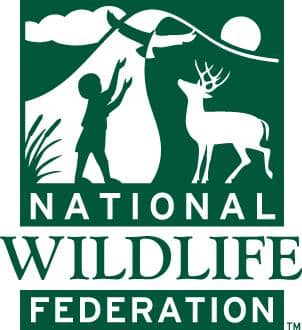NWF Joins Sportsmen, Conservation and Business Leaders to Defend Public Lands
OutdoorHub 08.14.14

Former Interior Secretary Salazar, NWF CEO and affiliates say keep public lands public
Former Interior Secretary Ken Salazar joined Collin O’Mara, the National Wildlife Federation’s CEO and president, and business and conservation leaders Thursday to speak out for conserving America’s public lands and against attempts to sell or get rid of the lands that sustain fish and wildlife populations as well as hunting, fishing and the country’s multi-billion-dollar outdoor recreation industry.
The National Wildlife Federation’s 49 state affiliates have unanimously approved a resolution that calls for keeping public lands in public hands and opposes large-scale exchanges, sales or giveaways of federally managed lands. This week, 41 of the state affiliates sent a letter to the Republican National Committee asking that it rescind a resolution adopted this year that urges Congress to turn over public lands to the Western states that want them.
The affiliates noted that public lands help grow America’s economy by supporting an outdoor recreation industry that generates $646 billion in economic benefit annually and supports 6.1 million jobs. The organizations stressed that wise stewardship of the lands that belong to all Americans is a long tradition that cuts across political and social lines.
“Despite the economic importance of federal lands to wildlife and people, they remain under constant threat. In recent years, several state legislative proposals have called on the federal government to transfer ownership of public lands to the states, which in turn would pass them off to private interests in many instances,” the organizations wrote.
The Interior Department’s latest annual economic report shows the agency’s programs and activities generated $360 billion in benefits and supported more than 2 million jobs nationwide in fiscal 2013. Former Interior Secretary Ken Salazar started preparing the reports in 2009 to highlight the department’s contributions to the U.S. economy.
“The nation’s public lands are the birthright and priceless heritage of all Americans. Our policymakers and elected leaders should be working to preserve and enhance these multiple use economic engines,” said Salazar, who served as Interior secretary from 2009 to 2013.
The National Wildlife Federation is on the front lines of conserving fish and wildlife and the places where they live, and in large part those places are public lands, O’Mara said.
“The National Wildlife Federation, our 49 state affiliates, and four million members and supporters strongly support keeping our public lands in public hands. As a diverse federation of hunters, anglers, hikers, wildlife watchers, and nature lovers, we are united in our passion for protecting public lands, which provide amazing outdoor experiences for all Americans, landscapes for deer, elk, pronghorn, and bison herds to migrate, forests for grizzlies, bighorn sheep and lynx, and critical habitat for more than 700 species of birds, 220 species of mammals, 1,000 species of fish and 250 reptile and amphibian species. For more than a century, protecting land for the benefit all outdoor enthusiasts and wildlife has been an essential element of the American experience—and we must pass on this legacy to future generations,” O’Mara said.
The wildlife federations have worked through the years to conserve the public lands necessary for fish and wildlife and hunting and fishing and will continue to do, said David Chadwick, Montana Wildlife Federation executive director.
“Every few decades this idea of selling off public land pops up, and public opinion always beats it back. Meanwhile, the challenges facing our national forests and other public lands have continued to grow,” Chadwick added. “We need our elected officials to quit wasting time on these speculative, ideological proposals and instead take action on the common-sense, collaborative efforts under way all over the country to improve land management.”
Surveys and polls show overwhelming support for public lands among voters in the West, the target of many of the drives to dispose of public land. That support extends beyond the region to other parts of the country where hunters, anglers and other wildlife enthusiasts enjoy the backcountry, rivers and forests, said Tim Gestwicki, the North Carolina Wildlife Federation CEO.
“Sportsmen and women and wildlife watchers in the Southeast value our public lands, from the Appalachians to the coast. We also value the Western lands and their abundant wildlife, big open spaces and great hunting and fishing. We stand with our fellow sportsmen and women in defending public lands and protecting the special places that offer some of the best of what this country is about,” Gestwicki said.
“Sportsmen are on the front line in this effort to prevent the transfer of federal public lands. These are the very lands where we hunt and fish, and where we pass on those traditions to our kids. The idea that somehow our federal public lands are dispensable is an affront to all hunters and anglers, and we are determined to protect these lands for ourselves and for future generations,” said Garrett VeneKlasen, executive director of the New Mexico Wildlife Federation.
America’s national parks, monuments and rugged landscapes are not only a draw for people in this country, but across the world, said Peter Metcalf, CEO and president of Black Diamond, Inc., a leading manufacturer of outdoor sports equipment and clothing.
“No other country in the world has the public land infrastructure that we have. There’s such a richness of landscape and wildlife. Our public lands and outdoor recreation and lifestyles are coveted by people around the world and are a draw for communities and employers competing for new businesses and workers,” Metcalf said. “Black Diamond’s brand is synonymous with these iconic landscapes that capture the imagination of people all over the world. In addition they are a source of inspiration for our designers, engineers and marketing people.”
Contact:
Judith Kohler – Communications Manager, Public Lands
Phone: 303-441-5163 | Mobile: 720-315-0855 l Fax: 303-786-8911 |
NWF-Rocky Mountains and Prairies Regional Center
2995 Baseline Road, STE 300
Boulder, CO 80303

